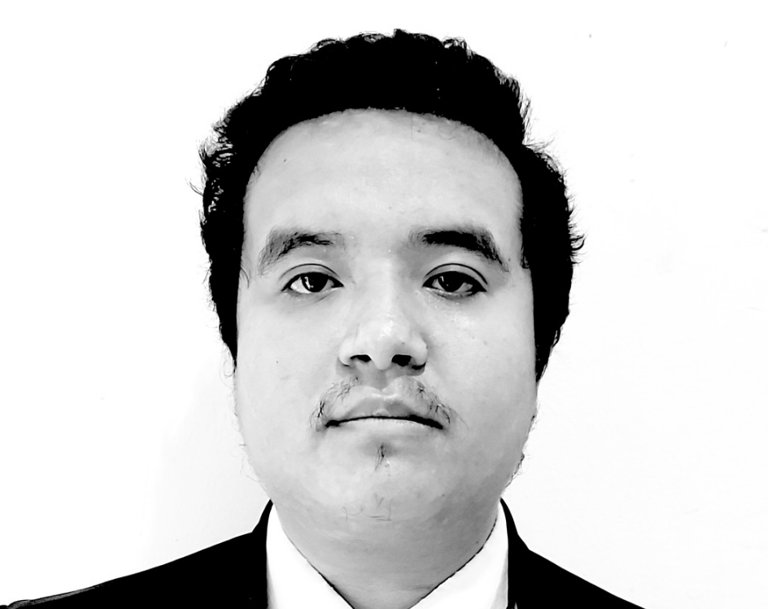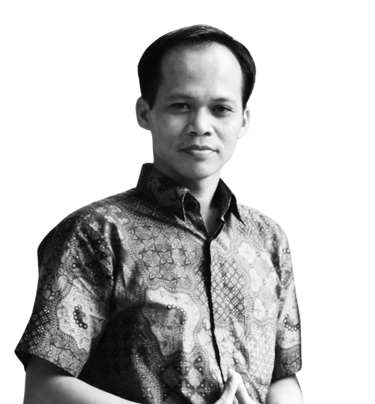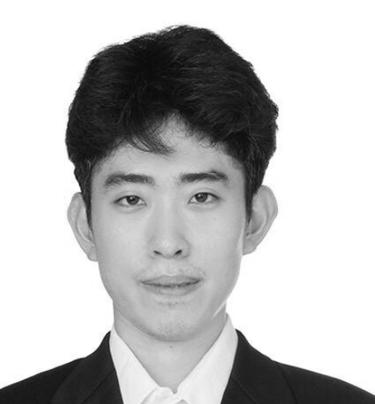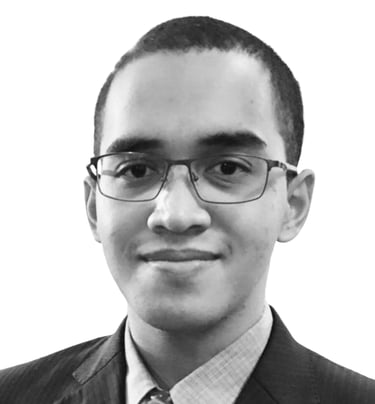Who We Are
The Nusra Economic Council is an independent, non-governmental organization committed to shaping the future of the Lesser Sunda Islands. We serve as a convening platform that unites leaders from government, business, civil society, and investment communities to foster dialogue, build partnerships, and accelerate inclusive growth.
Our mandate is rooted in the belief that collaboration across sectors is the key to unlocking the region’s potential. By bridging public institutions with private initiative, and local communities with global partners, we create the conditions for long-term prosperity, innovation, and resilience.
As a trusted platform for collaboration, the Council provides more than just a meeting place. We curate agendas that address the most pressing economic, social, and environmental challenges of East Indonesia. We facilitate high-level discussions that lead to actionable strategies, foster investment pathways that prioritize sustainability, and encourage entrepreneurship that drives transformation from the ground up.
The Council’s strength lies in its diversity. By bringing together policymakers, investors, entrepreneurs, academics, and civil society leaders, we ensure that the voices shaping the future of the Lesser Sunda Islands are as inclusive as the region itself. This holistic approach enables us to generate insights, design solutions, and mobilize resources that reflect the complexity and richness of Nusra’s economic and cultural landscape.
Through this work, the Nusra Economic Council contributes not only to Indonesia’s national development goals, but also to the broader global agenda for sustainable growth. Our vision is to position the Lesser Sunda Islands as a hub where innovation, heritage, and ecological stewardship intersect — a region that demonstrates how local resilience can inform global progress.
Our Purpose
The Nusra Economic Council exists to harness the transformative potential of the Lesser Sunda Islands and ensure that growth is pursued with foresight, equity, and sustainability. The region stands at a pivotal moment: its abundant natural resources, youthful demographics, and cultural richness create a foundation for opportunity, yet the challenges of geography, infrastructure, and inequality demand collective solutions.
Our purpose is to bridge these opportunities and challenges by creating a platform where dialogue becomes action, and vision becomes investment. We exist not only to highlight the potential of Nusra but to safeguard its future. By aligning economic development with ecological stewardship and cultural preservation, the Council ensures that prosperity does not come at the expense of the very assets that make the region unique.
The Council provides direction and convenes stakeholders to address questions that will define the region’s trajectory: How can we foster sustainable industries that create jobs and protect ecosystems? How can investors and communities collaborate for shared prosperity? How can Nusra’s cultural heritage become a driver of innovation and identity in the global economy? Our purpose is to ensure these questions lead to collective answers — and lasting progress.
Our Mission
Our mission is to accelerate the sustainable and inclusive development of the Lesser Sunda Islands by uniting leaders, driving innovation, and shaping pathways for responsible investment.
We pursue this mission through four interconnected commitments:
Convening Leaders
The Council brings together government officials, investors, entrepreneurs, NGOs, and academic voices to foster dialogue that transcends sectors and borders.Driving Knowledge and Research
We produce insights and analyses that inform decision-making, highlight opportunities, and shape regional and global strategies for development.Shaping Investment Pathways
By facilitating connections between capital and ideas, we mobilize resources toward industries that are both economically promising and socially responsible.Empowering Entrepreneurship
We create space for local founders and innovators to scale their ideas, access mentorship, and integrate into regional and international markets.
At its core, our mission is to ensure that the Lesser Sunda Islands do not remain a frontier of untapped potential, but emerge as a model of how innovation, sustainability, and inclusivity can coexist. We seek to align the region with Indonesia’s broader development agenda while also contributing to global conversations about the future of economies, societies, and the environment.
Our Institutional Framework
The Nusra Economic Council is designed to operate as an independent, non-governmental organization while maintaining strong partnerships across sectors and geographies. Our framework ensures that the Council remains inclusive, transparent, and effective in shaping the region’s economic future.
Governance Structure
The Council is guided by a Board of Trustees composed of regional leaders, national policymakers, and international advisors. The Board sets strategic direction, ensures accountability, and upholds the integrity of the Council’s mission.
Day-to-day operations are managed by the Secretariat, which coordinates programs, organizes convenings, and drives research and partnerships. The Secretariat works closely with stakeholders to ensure that initiatives are aligned with both local priorities and global standards.
Nusra Centres
To remain dynamic and responsive, the Council engages with specialized Centres that represent different sectors and themes. These include:
Investment & Finance — connecting global capital with regional opportunities.
Sustainability & Natural Capital — ensuring development aligns with ecological stewardship.
Entrepreneurship & Innovation — empowering startups, SMEs, and creative industries.
Community & Social Development — integrating local voices, cultural heritage, and inclusive growth.
These networks enable the Council to synthesize diverse perspectives and generate holistic strategies.
Partnership Ecosystem
Our institutional framework is strengthened by partnerships with governments, businesses, NGOs, academic institutions, and international organizations. By bridging local realities with global expertise, the Council creates a trusted environment where knowledge, capital, and action converge.
Principles of Operation
Independence — operating as a non-governmental platform free from partisan influence.
Inclusivity — ensuring representation of multiple sectors, communities, and voices.
Transparency — adhering to high standards of governance and accountability.
Collaboration — working through partnerships rather than silos.
This framework ensures that the Nusra Economic Council remains both a thought leader and a practical enabler — a trusted institution capable of turning vision into impact for the Lesser Sunda Islands and beyond.
Leadership and Governance
The Nusra Economic Council is guided by a governance framework that ensures legitimacy, inclusivity, and accountability. Our structure reflects our mission to convene leaders, mobilize investment, and drive sustainable growth for the Lesser Sunda Islands and East Indonesia.
Chairman of the Forum
The Chairman currently held by our Founder Diemas Sukma Hawkins, provides overall guidance and represents the Council at the highest level. As the primary steward of the Nusra's mission, the Chairman ensures alignment between stakeholders, advocates for the region’s interests nationally and internationally, and upholds the Council’s independence and credibility.


Diemas Sukma Hawkins
Diemas Sukma Hawkins is the Founder and Executive Director of the Nusra Economic Council. With experience spanning international economics, energy policy, creative economy, and sustainable investment, he has worked across government, private sector, and international platforms. His vision is to position the Lesser Sunda Islands as a frontier for inclusive growth, innovation, and global engagement.
Board of Trustees
The Board of Trustees safeguards the NEC’s vision and values. Comprising senior leaders from government, business, academia, and civil society, the Board provides strategic oversight, approves major initiatives, and ensures that the Council’s work serves the long-term interests of the region.


Ahyar Ross
Rinjani-Lombok UNESCO Global Geopark


Park Gun Woo
South Korea-Indonesia Investment Specialist
Managing Board
The Managing Board is responsible for the day-to-day direction of the Council. Led by the Executive Director and senior managers, this board coordinates across programs, partnerships, and Centres to ensure operational effectiveness and impact delivery.


Diemas Sukma Hawkins
Diemas Sukma Hawkins is the Founder and Executive Director of the Nusra Economic Council. With experience spanning international economics, energy policy, creative economy, and sustainable investment, he has worked across government, private sector, and international platforms. His vision is to position the Lesser Sunda Islands as a frontier for inclusive growth, innovation, and global engagement.
Managing Directors for Our Centres
Nusra’s thought leadership and expertise are organized into thematic Centres. Each Centre convenes stakeholders, produces insights, and drives action in its domain.


W. Hario Widodo
Centre for Security, AI, Digital Transformation and Technological Advancements


Tri Wibowo
Centre for Sustainability & Natural Capital


Ghazi Muslim
Centre for Regional Development and Trade


Najmuddin Haikal Fikri
Centre for Renewable Energy and Materials
Program Executives
The Council’s mission comes to life through flagship programs and initiatives that drive concrete outcomes across East Indonesia.


W. Hario Widodo
Director of Nusra Open Source Intelligence Forum


Ahyar Ross
Description of Role
Our History
The Roots of Nusra
West and East Nusa Tenggara — stretching across Lombok, Sumbawa, Flores, Sumba, Timor, and the surrounding islands — have long been crossroads of culture, trade, and exchange. Historically, the Lesser Sunda Islands connected maritime routes between Java, Sulawesi, and the broader Asia-Pacific. Their economies were shaped by agriculture, fisheries, weaving traditions, and inter-island trade, while their cultures carried deep spiritual and artistic heritage.
Despite this richness, the region often stood at the margins of Indonesia’s economic development. Infrastructure gaps, geographic isolation, and uneven investment limited its ability to fully participate in national and global markets. Yet these challenges also nurtured a spirit of resilience, cooperation, and innovation across local communities.
Modern Transformation
In recent decades, West and East Nusa Tenggara began to draw greater attention. Tourism in Lombok and Flores showcased the natural and cultural wealth of the islands. New opportunities emerged in renewable energy, fisheries, agriculture, and creative industries. The rise of younger entrepreneurs, combined with increased investor interest, set the stage for deeper engagement.
Recognizing this potential, local leaders, entrepreneurs, and investors came together to create spaces for dialogue and collaboration. This movement began on Lombok, with the formation of the Lombok Investment Community, a grassroots initiative to connect local businesses with capital and expertise.
From Lombok Investment Forum to Regional Vision
Building on this momentum, the Lombok Investment Forum was established as a larger convening platform. The Forum brought together government representatives, private sector actors, NGOs, and global investors to explore opportunities in sustainable tourism, fisheries, and infrastructure. These early forums demonstrated both the appetite and the need for a permanent, structured institution that could represent the region’s interests and coordinate long-term strategies.
The Founding of the Nusra Economic Council
In response, stakeholders from across the islands agreed to expand the initiative beyond Lombok. The vision was clear: to create a council that could represent all of West and East Nusa Tenggara within a single, credible platform. Thus, the Nusra Economic Council was founded — a non-governmental body with a mandate to unite leaders, foster inclusive growth, and position the Lesser Sunda Islands as a hub of innovation and sustainable development in Indonesia and the wider region.
Today, the Council builds on its roots in community-driven dialogue while operating at national and international scales. From local entrepreneurs to global investors, from traditional leaders to government officials, the Nusra Economic Council continues to evolve as a bridge between heritage and modernity, vision and action, Nusra and the world.
Our Founder


Diemas Sukma Hawkins
Founder, Nusra Economic Council
Diemas Sukma Hawkins is the founding force behind the Nusra Economic Council, bringing a diverse background in international economics, energy policy, creative economy development, and investment advisory. His career reflects a consistent commitment to bridging local opportunities with global networks, and to positioning the Lesser Sunda Islands within Indonesia’s broader economic transformation.
Student Researcher, Universitas Pertamina
He began as a Student Researcher on International Economics and Trade at the Department of International Relations in Universitas Pertamina's Faculty of Communications and Diplomacy. His thesis was on the shift to China for Global Trade and Technological Innovation.
Energy Policy Analyst, Indonesian Coordinating Ministry for Maritime Affairs and Invesment
He joined the Coordinating Ministry for Maritime Affairs and Investment as an Energy Policy Analyst, contributing to Indonesia’s national energy and maritime strategies. During his brief tenure here he was involved in Indonesia's National Strategic Projects in Energy such as the Renewable Energy Transition, Waste-to-Energy, and One Million Solar Roofs program.
Analyst for National Secretariat for Indonesian Geoparks, Indonesian Ministry of National Development Planning
Diemas served as a Geopark Creative Economy Analyst at the National Secretariat for Indonesian Geoparks, Ministry of National Development Planning (Bappenas), where he explored the intersections of heritage, economy, and sustainable development.
Investment Fellow, Stella Capital
He expanded his expertise in global finance as an Investment Fellow at Stella Capital, deepening his engagement with venture capital and sustainable investment strategies.
Founder, Geovest Capital Advisory
In 2025, he founded Geovest Capital Advisory, a private equity and venture building firm focusing on regenerative industries, cultural enterprises, and ecological infrastructure.
Expert Staff at Rinjani-Lombok UNESCO Global Geopark and Biosphere Reserve Management Agency, West Nusa Tenggara Province Government
In the same year, he was appointed Expert Staff to the Rinjani-Lombok UNESCO Global Geopark under the West Nusa Tenggara Provincial Government, where he continues to advise on integrating conservation, culture, and economic innovation.
Founder, Nusra Economic Council
Diemas established the Nusra Economic Council to consolidate these experiences into a single mission: to create a trusted, independent platform that connects leaders, investors, and communities in shaping the future of West and East Nusa Tenggara.
2018
2021
2022
2024
2025
2025
2025
Our Impacts
The Roots of Nusra
West and East Nusa Tenggara — stretching across Lombok, Sumbawa, Flores, Sumba, Timor, and the surrounding islands — have long been crossroads of culture, trade, and exchange. Historically, the Lesser Sunda Islands connected maritime routes between Java, Sulawesi, and the broader Asia-Pacific. Their economies were shaped by agriculture, fisheries, weaving traditions, and inter-island trade, while their cultures carried deep spiritual and artistic heritage.
Despite this richness, the region often stood at the margins of Indonesia’s economic development. Infrastructure gaps, geographic isolation, and uneven investment limited its ability to fully participate in national and global markets. Yet these challenges also nurtured a spirit of resilience, cooperation, and innovation across local communities.
Modern Transformation
In recent decades, West and East Nusa Tenggara began to draw greater attention. Tourism in Lombok and Flores showcased the natural and cultural wealth of the islands. New opportunities emerged in renewable energy, fisheries, agriculture, and creative industries. The rise of younger entrepreneurs, combined with increased investor interest, set the stage for deeper engagement.
Recognizing this potential, local leaders, entrepreneurs, and investors came together to create spaces for dialogue and collaboration. This movement began on Lombok, with the formation of the Lombok Investment Community, a grassroots initiative to connect local businesses with capital and expertise.
From Lombok Investment Forum to Regional Vision
Building on this momentum, the Lombok Investment Forum was established as a larger convening platform. The Forum brought together government representatives, private sector actors, NGOs, and global investors to explore opportunities in sustainable tourism, fisheries, and infrastructure. These early forums demonstrated both the appetite and the need for a permanent, structured institution that could represent the region’s interests and coordinate long-term strategies.
The Founding of the Nusra Economic Council
In response, stakeholders from across the islands agreed to expand the initiative beyond Lombok. The vision was clear: to create a council that could represent all of West and East Nusa Tenggara within a single, credible platform. Thus, the Nusra Economic Council was founded — a non-governmental body with a mandate to unite leaders, foster inclusive growth, and position the Lesser Sunda Islands as a hub of innovation and sustainable development in Indonesia and the wider region.
Today, the Council builds on its roots in community-driven dialogue while operating at national and international scales. From local entrepreneurs to global investors, from traditional leaders to government officials, the Nusra Economic Council continues to evolve as a bridge between heritage and modernity, vision and action, Nusra and the world.








